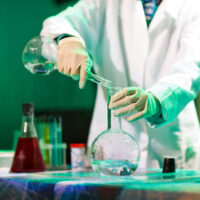Pennsylvania Drops Charges Against Defendant Because Of Substandard Work By Forensics Laboratory

In many criminal cases, the prosecution bases its case on forensic evidence, such as illegal drugs or weapons recovered from a defendant’s car or DNA evidence showing that the defendant or an item that the defendant had touched was present at the crime scene. Sometimes the prosecution summons expert witnesses to interpret the evidence and to show how it indicates the defendant’s guilt. The objective of the defense in a criminal case is to establish reasonable doubt about the prosecution’s arguments, whether prosecutors are supporting those arguments with forensic evidence, surveillance camera footage, or eyewitness testimony. It might seem easier to cast doubt on the testimony of a person who claims to have witnessed the alleged crime, because human memory is fallible, and witnesses in criminal cases sometimes have ulterior motives. It stands to reason that it is more difficult to cast doubt on forensic evidence. Witnesses can lie, but blood tests cannot. Forensic testing in crime labs is not as error proof as you might assume, and some defendants have prevailed in their criminal cases by showing that the results of drug tests and other forensic tests were inaccurate or that the results do not clearly connect the defendant to the crime of which he or she is accused. For help building a defense strategy in a case where the prosecution intends to prove your guilt by showing drug test results from a crime lab, contact a Pittsburgh drug crime lawyer.
Inaccurate Drug Tests Are a Legal Nightmare
Crime labs are notorious for not having their act together when it comes to testing substances that they confiscate from defendants’ possession for illegal drugs. You have probably heard the horror stories about the field tests that police officers use at traffic stops where the test medium turns pink or blue depending on whether it contacts a legal or illegal substance; at their worst, these tests cannot tell the difference between cocaine and laundry detergent. This is not the only way that forensic testing can go wrong. Crime labs sometimes mix up samples, especially when police send the sample to more than one lab over the course of an investigation or pending criminal case. Even medical tests can be wrong. For example, it is possible for defendants accused of drunk driving to challenge the results of tests of their blood alcohol content (BAC) at the time of the accident or traffic stop.
In the News
In late 2022, a Philadelphia court dismissed charges against a man accused of sexual assault. The alleged victim claimed that the man had given her drugs without her knowledge, so that she was unable to understand her actions and give meaningful consent. A forensic test of a hair sample from the alleged victim was positive for the drug lidocaine. The problem was that the Texas lab that performed the test was not properly licensed. It labeled the test results As for clinical use only, not for forensic use, and furthermore, the concentration of lidocaine in the accuser’s hair sample was below the threshold for intoxication.
Contact Gary E. Gerson About Criminal Defense Cases
A criminal defense lawyer can help you challenge forensic evidence in your criminal case. Contact the law offices of Gary E. Gerson in Pittsburgh, Pennsylvania about your case.
Source:
nbcdfw.com/news/local/texas-news/texas-labs-license-suspended-after-probe-into-pennsylvania-sex-assault-case/3039629/
